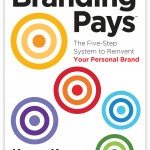websites
now browsing by tag
Posted by: Amy Collins | on December 13, 2012
What Does an Author Website Need?

— By Amy the Meanie —
There are a few different ways that you can handle your website plan. If you are an author with a great deal of expertise, create a website that will last beyond just the publication of your book. Create a website that has your entire brand under it. In that website that handles everything, you can then have a series of pages and subpages for your books.
For example. Karen Kang has created a company called Branding Pays. http://brandingpays.com/
On the webpage is a sub page for the book: http://brandingpays.com/book/
On THAT page is another level of subpages with details and content to educate and entice the reader to buy her book:
- EARLY PRAISE
- CONTENTS
- AUTHOR
- EVENTS
- WEBINARS/COACHING
Here is another example of an author who has a great brand and consulting business and uses his website to draw attention to all he offers. The book page is important and easy to see, but only used as a part of what he is offering.
What I like about this site is that when he has a new book come out, he highlights it right away on the top of the main page. But when other projects take precedence, he highlights those instead. He has a terrific drop down menu for all of his books and each page is clear, persuasive and very visual.
http://eosworldwide.com/traction/eos-traction-book/
He also cross-sells his other seminar and consulting services on each page. Subtle, not pushy, but effective.
There are a number of good reasons to create a website that highlights the book only. I have a client in a very regulated industry who will not allow him to cross-sell any services. His industry constraints make it necessary to separate the book from his business completely. He has done a terrific job on his website:
http://dollarsanduncommonsense.com/index.html
This is a wonderful example of a simple site that hits all the basics:
- A page that lists the media hits and tells the media how to get in touch with him
- An author bio
- A button/page that allows media and buyers to download samples.
- A good contact page.
- His front page shows him on TV as an expert and gives the browser a good idea of what his book and message is about.
- Several locations where folks can “Buy the book”
This is an extremely simple website that has all the “must haves”.
But what are the other possible elements an author/book site should include? Here is a list.
- Home page with a brief, short, just-a –few-sentences about why someone should buy the book. Not a description of the book, but a promise of what reading the book will deliver.
- “Buy the book” buttons on every page that link to all the major places from where you want them to buy your book. (indie bound, Amazon, B&N.com Books-A-Million.com) Don’t just use Amazon, be fair to everyone.
- About the Author. Author bio, short form and long form. Author photo and a link to allow media to download a high res version of the author photo. For non-fiction authors, credentials, CV, list of awards…. Etc.
- An Event page with press releases, event photos, calendar of events, contact information for those wishing to host an event.
- It is nice to start and maintain a list of reviews and endorsements right from the beginning. What are people saying about your book? Put it on the webpage!
- Your blog (even if it is a duplication of another blog address)
- Your Table of Contents and a sample chapter
- If you have a media page (and you most likely should), make sure you make thing easy for the poor reporter. Headshot, bio, press releases, sample chapters, front cover, full cover spread, and contact information should be very easy to find. Make sure everything is high resolution.
- If you want to make a page that shows where you have been, put a few on the front page too to impress browsers. Use the logos from the stations you have been on and newspapers/blogs you have appeared in.
- Link to EVERYTHING you can on line (most TV and radio shows now have online links. Find your clip and link it). If you write an article for another blogger or for a news outlet. Link it!
- Links to other authors/books/sites you find helpful. Links help search engines find you
- Have at least three levels of pages. Main, Secondary and Tertiary. SEO works better with three levels of pages and make sure you link all three levels on each page. (Third level links to an article on the second level. Second level always links to the main page and a tertiary page as well.)
This is by no means a complete list, I am sure there are things other authors have done that are extremely cool, but this is the list of what has proven to be helpful and effective for many of my clients.

 D5 Creation
D5 Creation